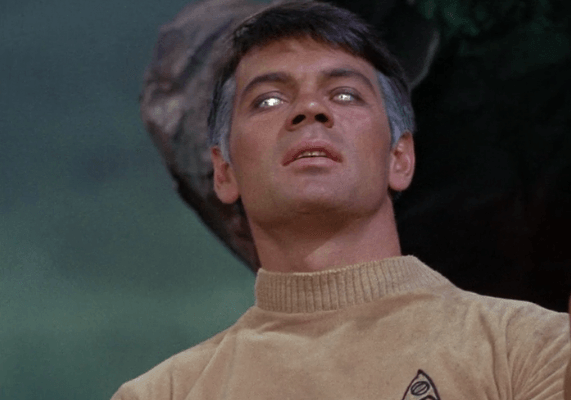Gary Lockwood: 2001, Star Trek actor on stellar career, upcoming book
Gary Lockwood in a screenshot from the Star Trek episode, “Where No Man Has Gone Before.”
Very few actors are lucky enough to land that once-in-a-lifetime role; a role which film critics and students alike might well call emblematic. Gary Lockwood is lucky in the respect that he landed two such memorable roles: First as Lt. Cmdr. Gary Mitchell in the Star Trek pilot episode, “Where No Man Has Gone Before”, and then as Dr. Frank Poole in the film which many call the best ever made, “2001 – A Space Odyssey”. Lockwood was in Baltimore last fall to appear at the 2016 Mid-Atlantic Nostalgia Convention. We spoke with Lockwood (and co-star Keir Dullea) briefly at the convention, then caught up with Gary sometime later, while he was vacationing with friends and family in Maryland, to talk about his note-worthy career and get a sneak peek at his forthcoming book.
BPE: Thank you for taking time away from your vacation to speak with us today. When we spoke for a few minutes at the Mid-Atlantic Nostalgia Convention, you said I’d need to warn my readers that you were a bad boy. Can we start right there?
Gary: What I meant by that is, I was kicked out of UCLA for being in a fight, but it wasn’t my fault, and I was cleared in court. Then, I went into a restaurant one night where there was this big karate guru who trained everybody in Hollywood. This guy had killed somebody over a fight about a dog. He threatened me and we had words, then he jumped me from behind. I had some training which I won’t get into, but I subdued him and beat the hell out of him. There were a lot of actors there, who had trained with this guy, so that just cemented my reputation as a bad boy. I ended up getting into a lot of fights with people I’d never heard of, but as Sonny Bono said, “The beat goes on”. Sonny was a friend of mine, btw, and I really loved him. But that sets the stage for my story.

BPE: That’s an interesting way to start. I remember reading in David Niven’s book where he noted that every actor in his day, who had a tough-guy reputation, had to deal with strangers looking for trouble. Errol Flynn apparently was the only one who actually enjoyed getting into fights. But Humphrey Bogart, George Raft, James Cagney – each one had to find a way to defuse those sorts of situations.
Gary: Oh, yeah. I defused 90% of my confrontations. BTW, Cagney said at one time he thought I was the best new young talent in the business. A.C. Lyles told me that. I was sitting having lunch at Paramount with a bunch of actors who liked me, and Lyles came around the corner and said, “You’re Gary Lockwood!” I said, “Yes, I am”. And he said, “Well, James Cagney thinks you’re the best young talent in town.” So that was really nice. When the American Film Institute honored him later, he said the same thing to the press in LA.
BPE: High praise indeed.
Gary: I’m sure that upset a lot of people.
BPE: I’ll bet it did. Was your reputation of being a guy who could handle himself in a fight what got you into doing stunt work?
Gary: Not really. I had been a trick rider in the rodeo as a kid – sometimes with Montie Montana. When I got bounced from UCLA, I came back to the rodeo and saw one of the coaches cash a check from either Warner Bros. or Columbia – I can’t recall which – and I said, “Hey, you’re working in the movie business.” He said, “Yeah, but we’re not gonna get you involved with that. You’d probably run off and be an actor.” That’s eventually what happened, though I didn’t seek it – it sought me.
BPE: What was your first big break in acting?
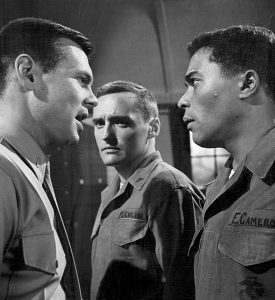
Gary: I guess that would be when I went to see about doubling for Tony Perkins in Tall Story. At that point in time, my legs weren’t too thick. Tony Perkins had these spindly little legs, so I would be a good double for him. The director and cameraman were talking, and the technical director was a guy from UCLA. He looked at me and then said to the director, “This guy looks like he could be Slavic.” They gave me some sides and said, “Would you like to act in this movie?” Needless to say, acting is a lot easier than falling down and getting hurt. So I did the job and played a Russian. Then one day, Jane Fonda said, “You know, you’re rather good at this.” So she sent me to her agent. I didn’t know it was that significant, but the agent handled Sean Connery and James Dean, Marlon Brando and the like. So, that was it.
BPE: Bernie Kopell also told us how important it was for him to find an agent so that he could get his foot in the door.
Gary: Yeah, I think today with not as much work and runaway productions, I’m not sure what a young actor does to try to get started.
BPE: It’s a different game today.
Gary: It looks to me like it’s a game that is impossible, but I’m not involved anymore, so I don’t know.
BPE: You had two television shows. Both got good reviews but were nonetheless short-lived.
Gary: Well The Lieutenant lasted 29 shows, the other (Follow the Sun) lasted 30. That’s an entire season. But if The Lieutenant had gone on, I wouldn’t have been able to do 2001, and everybody in our industry wanted that job.
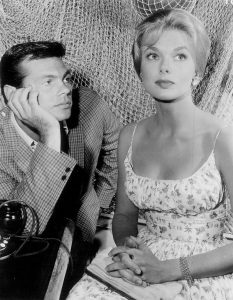
BPE: Starring in The Lieutenant was your introduction to Gene Roddenberry?
Gary: Yeah, and then I ended up doing the second pilot for Star Trek.
BPE: How did that come to be? They had done a previous pilot with Jeffrey Hunter, right?
Gary: Yeah, he was a neat guy, by-the-way. They did the pilot with Jeffrey, and I’ve heard seven thousand different versions of why it didn’t sell. I don’t like to speculate on things I really don’t know.
BPE: One rumor is the network wasn’t crazy about the green dancing girl. She was just too sexy for TV in 1966.
Gary: Who knows? That could just be something the fans came up with. Star Trek fans tend to sit around and think of things like that.
BPE: Can I quote you on that?
Gary: I don’t care. I think Shatner once said to them, “Get a life” or something like that.
BPE: Your memories of working with Gene Roddenberry?
Gary: I liked working with Gene. I think the thing about him which separated Gene from the herd was, if we had a problem, he would come down on the set and fix it. He had a great staff, but Gene was just hands-on in that way. You have a script, but once you get it on the floor and start to shoot it, you tend to evaluate it. In the motion picture business, if something goes awry, you’ve got to fix it. Movies have two lives: the life of the script and life of the reality of the moment.
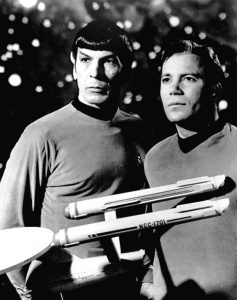
BPE: In viewing the Star Trek pilot with Sally Kellerman, it appears the two of you had a good chemistry.
Gary: We did. I also did other roles with Sally. She’s a damned fine actress. I called her Miss Vague, because when you’d say good morning to her, she’d reply, “Good… Morning” in different rhythms.
BPE: What about the rest of the Star Trek crew?
Gary: Well, I had worked before with Nimoy, and I may be partly responsible for getting him the job. Roddenberry had me to his home for a kind of goodbye to The Lieutenant thing, and he told me about his new series. What makes this story fun is we had both been drinking.
We were bubbling along with a nice meal and brandy and champagne, and he explained the character of Spock. I said, “You know, contrary to you and all the other officers, you need an actor who is not all over the joint to play such a cerebral part. I worked with such a guy. He was a Jewish kid from New York. Gene asked, “Do you remember his name?” I said, “No, but he had one of those names Jewish ladies name their kids, like Marvin or Harold. Something like that”, and then I remembered, “No – his name was Leonard”. Gene said, “Nimoy?” And I said yeah. I thought that was kind of funny. So, he ended up being Spock, but that was just a conversation that we had.
Today we call that networking, but I guess back in the day, it was just a conversation.
I don’t know how much that aspect has changed. A painter still needs to go to the paint store to get the right paint to put on his canvas.
BPE: Your analogy of putting an artist together with the right paint and canvas provides a great segue to our questions about 2001: A Space Odyssey. For you, it was a once in a lifetime role in one of the greatest films ever made.
Gary: I agree.
BPE: I recall seeing the film as a teen and being absolutely riveted to my seat – even after the curtain came down and the house lights went up.
Gary: Yes – people would just sit there scratching their heads. That’s what the movie did to them.
BPE: 2001 was in production for three years?
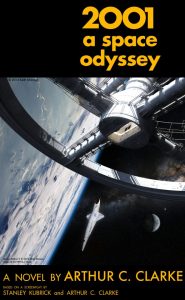
Gary: Three years, yes, but from the point where the concept started to be developed, I’d say 8-10. Both Stanley (Kubrick ) and Arthur (C. Clarke) each told me they spent a lot of time walking around Manhattan just discussing things. I think what Stanley did all through those years was make notes for himself. Stanley Kubrick was absolutely by far the greatest director. There is no doubt in my mind as I say that. After I finished the film and went on the road to start selling it, I said to some people I thought we had made the best film of all time. I was taken to task for that statement – particularly in New York. Of course, I’ve had a lot of fun over the years getting back at them.
I talked to Warren Beatty about this, by the way. I had a movie opening in the city, and he had one opening there as well. Both of them got lacerating reviews. Mine ended up being a cult art house classic, and his film was Bonnie and Clyde.
BPE: Bonnie and Clyde is another great movie which pushed the cinematic boundaries of the time. The violence in the film was certainly jarring, but it wasn’t gratuitous in the way later films seemed to foist those outrageous body counts.
Gary: I think the most violent film I ever saw was called The Wild Bunch.
BPE: Yes – Sam Peckinpah.
Gary: That was written by a very close friend of mine in those days. Everybody has their own way of making films. I think the new geniuses are the Coen brothers.
BPE: With a three-year production schedule, may I ask how long you actually worked on the film?
Gary: I’m not sure now. My official start date was supposed to be in 1965, but when I arrived on the set, Stanley wasn’t ready for me. So I went down to Rome to visit a friend of mine and finally got before the camera sometime in 1966. But 2001 is a very different kind of film. There were times when we only got one shot a day. People who don’t know much about working in television or the movies will sometimes ask, “Which did you enjoy most – Star Trek or 2001?” I don’t know how to begin to answer that question. One’s an apple – one’s an orange. Maybe one’s a crab apple. I don’t know.
BPE: After 2001, you made several more great films.
Gary: I did They Came To Rob Las Vegas. That was the number one film in America for a time. So yeah, the beat goes on. I did a film for Stanley Kramer (R.P.M.) and one with Jacqueline Bisset (Stand Up and Be Counted). You’re an actor – you know, you go where the action is.
BPE: We’ve talked quite a bit about your career, so let me ask you now about your book. Where are you right now in the process?
Gary: Well, I’ve finished everything about my career and now I’m looking for the golden thread which brings the reader up to where I am right now. I’ve got lots of notes on my desk back home and have been jotting things while here on vacation, but there’s a point where I’ll get back to Los Angeles and sit down at my computer to finish this up. I have a working title, but several publishers have told me that will probably be changed once the final manuscript is approved and the editing has been completed.
BPE: I suspect you’ll be devoting a whole chapter on working with Stanley Kubrick?
Gary: Here’s the thing you learn in the post-mortem about making a film like 2001. The entire young community of movie-makers are fascinated by that film.
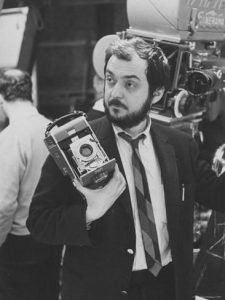
You have a new generation of film-makers who are completely strung out on Stanley, so I’m thinking of devoting a place in my book I will call “Kubrick’s Corner”. By “new generation”, I’m speaking of the 20-25 year-old who is making movies with his I-Phone. I’ve got some really nice things to say to them. Being a great director is being a great photographer. It’s all about what’s inside the box. Not working with actors and such like everybody says. That works in the theatre because the theatre is not very visual. The camera is the paintbrush.
Of course, you have to be aware of film speeds and things like that. To me, it’s amazing what they are doing today.
BPE: And all with an I-Phone.
Gary: I’ve been on the road, giving lectures and had professors say to me, “You know, your film (2001) was brought up in class today.” 2001 is taught in every college that has a decent film program. If it’s not there, that’s the exception. If you really know and understand Kubrick’s work from beginning to end, there was really never anybody who was that good. It’s not a maybe. To me, it seems obvious. The guy wasn’t just ahead of the curve – he was utilizing all of the material that was available. He was a very conceptual man.
The other thing I like to say when I’m doing a lecture is: A film is never good by accident. You don’t accidentally make a good film. You can accidentally strike a chord with the audience. With Easy Rider, they hit it with long hair and xenophobia in America. Now, I don’t find Easy Rider to be a particularly great movie, but the point is, it had a social statement that propelled it to the top of the mark. But those situations come along very rarely.
With society, each generation stands on the shoulders of the last, so there is always that constant. But as far as the technique of making a movie, I don’t think that will ever change.
BPE: Is there anything else you’d like to add?
Gary: Let me say this about my book. I’m 80 years old, and I’m not protecting my career. There’ll be some venom in there, I can assure you of that. And there are a few critics I’m going to have a lot of fun with. But I can also tell you there will be plenty for any reader. I have stories about the McQueens, the Fondas, Stanley Kubrick, Elvis Presley. You know, I was in two films with Elvis. I have stories about great stunt fights and almost getting killed. I’ve traveled around the world a great deal, been up the Amazon. I was once taken hostage in the Phillippines – there is a lot in the book. I have had a very full, rich life, and I can’t wait to finish this up and get it out there.
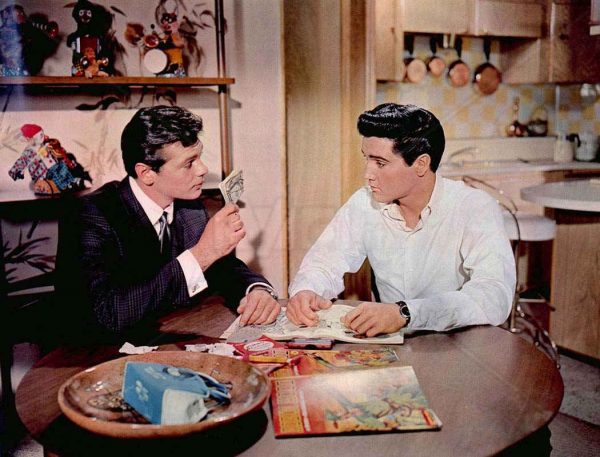

Anthony C. Hayes is an actor, author, raconteur, rapscallion and bon vivant. A one-time newsboy for the Evening Sun and professional presence at the Washington Herald, Tony’s poetry, photography, humor, and prose have also been featured in Smile, Hon, You’re in Baltimore!, Destination Maryland, Magic Octopus Magazine, Los Angeles Post-Examiner, Voice of Baltimore, SmartCEO, Alvarez Fiction, and Tales of Blood and Roses. If you notice that his work has been purloined, please let him know. As the Good Book says, “Thou shalt not steal.”

